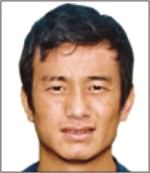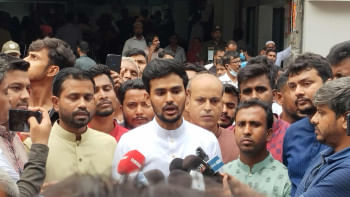Bhutia won't carry torch

Bhaichung Bhutia
India's football captain Bhaichung Bhutia on Tuesday refused to carry the Olympic torch when it arrives here this month in protest against China's crackdown in Tibet.
Bhutia, a Buddhist from northeastern Sikkim state, nestled between India, China and Nepal, wrote to the Indian Olympic Association (IOA) saying he wanted to "show my solidarity" with Tibetans.
"I sympathise with the Tibetans and their cause. I have sent a letter to the IOA refusing to carry the torch," the 31-year-old Bhutia said in a statement.
"I have many friends in Sikkim who follow Buddhism. This is my way of standing by the people of Tibet and their struggle," he later told reporters in Kolkata.
"I feel what's happening in Tibet is not right and in my small way I should show my solidarity," he said, adding his decision was "absolutely personal."
Indian Olympic officials said they had not received any communication from Bhutia.
"I have learned from someone that Bhutia has turned down our invitation," IOA secretary general Randhir Singh said. "Since we have not received any letter from him, I would not like to comment on it."
Three other Indian athletes invited to join the relay -- Milkha Singh, GS Randhawa and PT Usha -- said they would participate.
"I feel sports and politics should not be mixed. And I'll surely take part in the relay," Singh told the Press Trust of India.
Randhawa, a hurdler, said participating was a "matter of great pride and honour for me and I'll be there in the relay."
The India-based Tibetan-government-in-exile hailed Bhutia's decision but said it will not try to influence other athletes.
"We appreciate Bhutia's gesture and welcome it," Thubten Samphel, spokesman of the Tibetan government-in-exile, said by telephone from Dharamshala town in northern India where his administration is headquartered.
"But we are not making any appeal to the others as it will be a decision they need to make," Samphel told AFP.
"The Dalai Lama supports the right of China to hold the Games, and that's our stand, too," he said.
The Olympic torch is due to arrive in India on April 17 and Indian security sources told AFP that the route had been altered as a precaution against possible disruption by Tibetan exiles.
"Originally it was set to start in (the western Indian city of) Mumbai, but now the relay will be a limited event and held in the Indian capital," a top home ministry official said, asking not to be named.
Other Tibetan groups urged relay runners to follow Bhutia's example.
"Hope it encourages others like Usha and (actor) Aamir Khan," said Tibetan Youth Congress president Tsewang Rigzin.
Bhutia, who was conferred India's third highest civilian honour for promoting football in a country where cricket is the ruling passion, has scored more than 35 goals at the international level.
India, home to more than 100,000 Tibetan refugees, has witnessed a string of demonstrations since protests first broke out over the border in Lhasa on March 10, the 49th anniversary of a failed uprising against Chinese rule.
The Olympic torch relay, which was launched by Chinese President Hu Jintao in Beijing on Monday, is the longest ever, lasting 130 days and covering 137,000 kilometres (85,000 miles).
It will pass through 19 countries during April before returning to China on May 4.

 For all latest news, follow The Daily Star's Google News channel.
For all latest news, follow The Daily Star's Google News channel. 



Comments